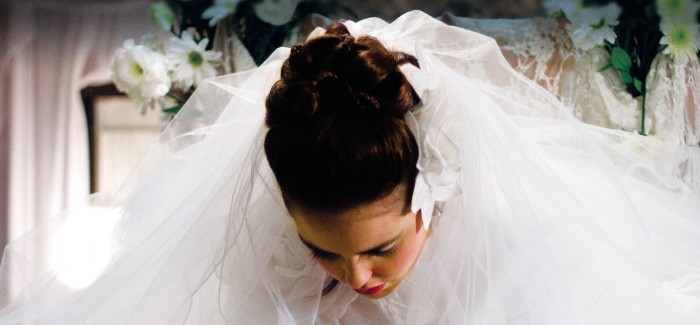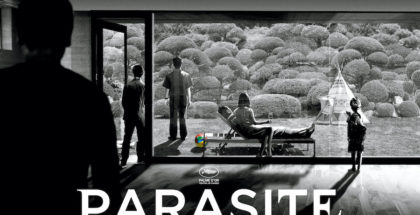VOD film review: Fill the Void
Review Overview
Emotions
8Voids
8Filling
8David Farnor | On 20, Dec 2013
Director: Rama Burshtein
Cast: Hadas Yaron, Hila Feldman, Razia Israeli, Yiftach Klein
Certificate: U
Watch online: Curzon Home Cinema / Apple TV (iTunes) / Amazon Instant Video / Google PlayK
“Maybe everything happened so I marry him.”
That’s Shira (Yaran) in Fill the Void, responding to her mother’s suggestion that she marry her sister’s husband, Yochay (Klein). It’s an unusual situation that makes for a fascinatingly subtle drama about loyalty, romance and religious community.
The 18 year old was all set to marry another man, whom she really liked, until her older sister passed away. Now, with the widower looking after little baby Mordechai on his own and Shira at a ripe age to marry, another wedding seems the logical solution: a way to keep the family together and everyone happy.
Is it a terrible idea? Directed by Rama Burshtein, the first Orthodox Jewish female to make a film intended to be shown to the wider public, Fill the Void doesn’t try to pass judgement – a decision that rewards the audence with a rich, complex exploration of obligation and desire.
“You’re pressuring me,” she says to her mum, Rivka (an excellent Irit Sheleg), and Aunt Hanna (a determined Razia Israeli). “We’re not,” comes the reply. “Yochay is great but it’s What you want.”
Hadas Yaron is astonishing as the young bride-to-be, unsure about what she wants and yet certain about what is right. Her chemistry with the likeabley gentle Yiftach Klein is instantly believable; when the two meet, they simply sit awkwardly in silence for a minute while Burshtein’s quiet camera soaks up the frank atmosphere. Compliments about her appearance make us blush as much as her.
Their negotiation of emotions runs in contrast to the potential partnering of Shira’s friend Frieda (Feldman), who bears the sad brunt of rejection. As Shira gets to know her unassertive suitor, their relationship moves from timorous to tender, but never any further; Hasidic conventions dictate that they cannot come into physical contact, adding a frisson of tension to every interaction.
“You’re too close,” she says during one private exchange. “I could have been closer,” he murmurs.
Religion plays a huge part in their lives, but Fill the Void almost skirts the issue completely. It’s not about them looking to escape from the society, but finding a way to happiness within it; the Tel Aviv community supports the couple as they have the final say on their relationship. That tone turns the film from a stereotypical drama into a story of understated honesty and warmth – one scene where they are discussing the wedding with a Rabbi is interrupted by another old women. “Rabbi,” she says, “I need help to buy an oven.”
There are hints of social commentary, as Yochay tells his partner he doesn’t want her to disappear into the traditional role of a mother, but the focus is firmly on their feelings. When the big question appears to arrive, Shira turns to her possible husband. “Would you like to ask me?” He asks: “Why do you want to marry me?” The addition of that single word to the expected proposal creates a sentence that speaks volumes about the permanent bond of marriage. It’s a surprisingly exposed glimpse of the ambiguous, open truth of love, and makes Fill the Void one of the most interesting, moving films about relationships since The Graduate.





















